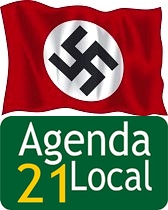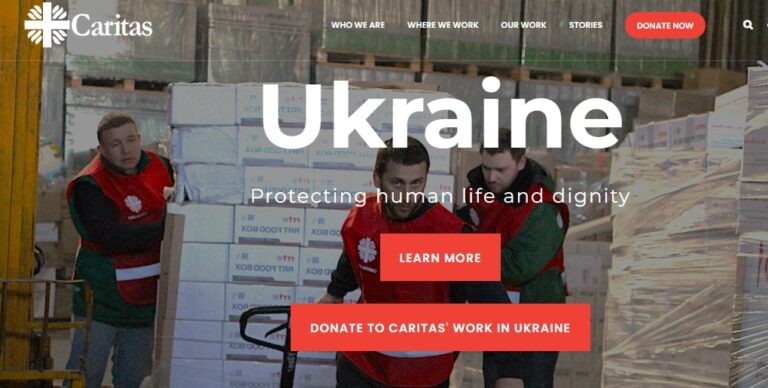
By Susan D. Harris
Published in Freedom Outpost
Little Golden Books have been making money for a German company with roots in the Third Reich and a future hell-bent on New World Order governance. This is the disturbing tale of how The Poky Little Puppy and his friends fell into foreign hands.
Having held a lifelong enchantment with Little Golden Books, especially illustrators like Eloise Wilkin, Garth Williams, and Richard Scarry, I casually decided to find out who currently holds the copyrights to these timeless classics that were a mainstay of American childhood for decades.
This is when things got a little confusing. A quick look at their website shows they are published by Random House, a Penguin Random House Company. Penguin Random House is a principle division of the German company Bertelsmann SE, the global mass media conglomerate. Their name is prominently displayed on the Random House Children’s Books Apps page. Bertelsmann is run by the Mohn family, whose past is connected to fascism and whose future is committed to socialism or communism, depending on who you talk to.
Heinrich Mohn prospered in the family publishing business in Germany under the Third Reich, while his son, Reinhard Mohn, fought with Rommel’s Afrika Korps in WWII. The Guardian reported that Heinrich was a member of the SS. So you could say that Little Golden Books — created by Americans and marketed to American children during the dark days of WWII when their fathers and brothers were at war — are now owned by a company that aided the Holocaust.
In 2002, Deutsche Welle released the results of an Independent Historical Commission “set up to research Bertelsmann’s wartime history.” The commission was started after Bertelsmann mislead the public about their relationship with the Third Reich in order to gain favor prior to buying Random House in 1998. In fact, ever since 1945, the company had perpetuated the legend that they had played an active role in the Nazi Resistance; a story they’d used to successfully convince occupying forces to grant them a publishing license.
Of course, Bertelsmann had an ace in the hole in 1998 — the Random House acquisition was facilitated by Jewish-American businessman Richard Sarnoff. (Richard’s great-uncle was media mogul David Sarnoff.) Richard went on to become co-chairman of Bertelsmann and “played a key role in the strategic and corporate development activities of Bertelsmann Inc. in the U.S. and in Asia.”
Some people’s memories weren’t so short concerning Bertelsmann’s Nazi past, however, nor were they dissuaded by the Sarnoff name. In December 1998, The Nation published an article bluntly titled “Bertelsmann’s Nazi Past,” while the Swiss weekly Die Weltwoche ran a similar piece. How was this news received? In January 1999, journalist Elizabeth Mannus penned an article titled, “Bertelsmann’s Nazi Past Gets Ho-Hummed in the U.S.”
Mannus explained that Peter Olson, then Random House’s chairman and chief executive, sent a memo to all employees saying “that their new owners were facing some tough accusations.”
Olson wrote:
During the Nazi era, there were clearly some titles published by Bertelsmann which were not consistent with our values.
He elaborated that the company had published:
…a wide range of Hitlerian propaganda,” including titles such as “People Without Space,” which whipped up enthusiasm for Hitler’s attacks on Germany’s neighbors; and “Between the Vistula and the Volga,” which claimed Jewish people had murdered scores of Ukrainian women and children…A follow-up report…included the news that Bertelsmann, which had begun in 1835 as a publisher of prayer books and hymnals, had published a book called “Sterilization and Euthanasia: A Contribution to Applied Christian Ethics” in 1933.
Olson ended his memo by telling employees that if they had any questions about their new owner’s past, they could call him personally and he would address their concerns. He plainly listed his phone number. Not one person called.
The findings of the commission were even more incriminating. Their official report stated:
…many of (Bertelsmann’s) works also contained extreme derogatory texts about foreigners and Jews…several of the company’s printing houses in Vilnius, Lithuania, relied on cheap Jewish laborers from the local ghetto to run their presses…it is very likely that Nazi slave laborers were used in associated printing houses in Riga, Latvia.
Apparently everyone was okay with that. Even before the report came out, the Anti-Defamation League (ADL) honored the Bertelsmann Foundation with an award specifically honoring Reinhard Mohn in 1999. Reinhard, remember, was Heinrich’s son who had joined the Luftwaffe and also served as a lieutenant in Rommel’s Afrika Korps. He was captured by American forces and sent to a POW camp in Kansas where he reportedly learned English and “American business practices.” He took the American model of the “book club” back to Germany, rebuilt the family business, and created a lucrative publishing empire.
In 1999, The Nation wrote that “Although the Bertelsmann Foundation donated about $1 million to the ADL for projects in Germany to promote democracy, human rights and tolerance,” a spokesman for the ADL said the award was for the foundation’s “moral commitment.” The spokesman then “pointed out that the award recognizes the current programs and leadership of the Bertelsmann Foundation and not the past activities of the company.”
So what is the Bertelsmann Foundation doing these days? According to their website, “the North American arm of the Germany-based Bertelsmann Stiftung” was founded in 2008. They “serve as a “Center for European Excellence” and — more broadly — as an international window in the US capital, providing a showcase for global best practices and a venue for thought leaders to exchange ideas for confronting society’s greatest challenges.” (Thought Leaders: Step forward from the Orwellian shadows and report for duty.)
According to Mohn’s will, the foundation is dedicated to European Unity; but apparently their D.C. office has more far-reaching ambitions.
If you’d guess the foundation’s website is peppered with kitschy, New World Order lingo like “sustainability” and “climate change” and phrases like “restructuring our traditional notions of wealth and growth” — you’re right. Check out this video that recently won the Reinhard Mohn prize. It’s right on board with United Nations Agenda 21 and the 1992 Earth Summit. As a matter of fact, you can order “Winning Strategies for a Sustainable Future” — published by the Bertelsmann Foundation — right on the Brookings Institution website. (It probably also sits on Cass Sunstein and Samantha Powers’ coffee table.) The foundation isn’t just about saving the forests; but about orchestrating a “truly global agenda…to develop a fresh approach to global governance.”
To ensure they maintain their prestigious influence, Bertelsmann recently awarded former secretary-general of the U.N., Kofi Annan €200,000 “for his exemplary efforts to promote sustainable development around the world.”
Just as they did in WWII, Bertelsmann still knows whose palms to grease.
Bertelsmann is also making a name for itself with its own think tanks. In 2011, they released a “Social Justice” study that ranked the U.S. at the bottom of the list among rich countries; only Greece, Chile, Mexico, and Turkey fared worse. Last month, they released a report which stated that Muslims in Germany have close ties to their society, and that 90 percent of highly religious Muslims are very supportive of democracy as a form of government. An Islamic expert for Bertelsmann stated that:
Muslims now consider Germany home…However, they find themselves confronted with a negative image that apparently prevails because of a minority of radical Islamists…Muslims and non-Muslims in Germany have a lot in common…that could serve as the basis for feeling ‘we’re in this together.’ For that to happen, however, more people will have to recognize and respect Muslims and their religion.
There was no mention of Sharia law or female genital mutilation. That would have spoiled their plea for unity.
The report was released before the Charlie Hebdo attacks in Paris.
The bottom line is anything “Bertelsmann” is scary powerful, sickeningly influential and working from a larger agenda. Everything they produce is dripping with U.N. catchphrases like ‘wealth and resource redistribution,’ ‘social justice,’ ‘impact studies,’ and the most dangerous concept currently being thrust upon the world: ‘sustainability.’ The quest for their elusive sustainability demands allegiance to a one world government and worldwide destruction of national sovereignty and borders.
The Bertelsmann umbrella includes so many radio and TV, publishing and music labels it boggles the mind. Regardless of their discarded past, one has to agree with what the editorial director of Yale University Press said way back in 1999:
What’s most dismaying is that [Bertelsmann] now owns so much of American publishing. I think it’s bad for American publishers to be in the hands of foreign conglomerates in any case, but in this case it’s particularly lamentable…I would hate to know what would happen if one of these conglomerates became part of a tyrannical foreign power…What if 40 percent of the American publishing had been owned by German firms in 1932? Things like this happen and happen….We can’t somehow be free of the past…we think it’s over and then it’s not over.
In my trip down memory lane, I was sadly reminded that we are all #oneworld #globalcitizens now. Our future is being planned for us while we mistakenly believe we are the masters of our fate. Since 2001, The Poky Little Puppy has been providing revenue for Bertelsmann to employ covert political and economic transformations around the globe. If he’d only been microchipped, he might have found his way back to his original publishing home in Racine, Wisconsin. I hope he never forgets where he came from.
(Note: DreamWorks recently added Little Golden Books to their portfolio, apparently for digital exploitation. Random House apparently retains the rights to book publishing and apps.)








